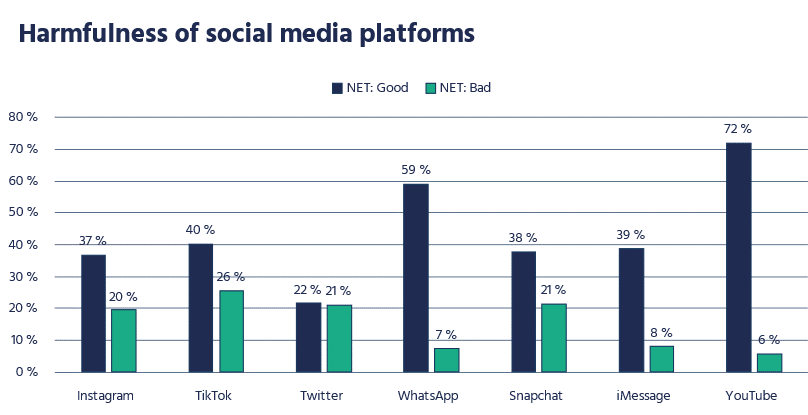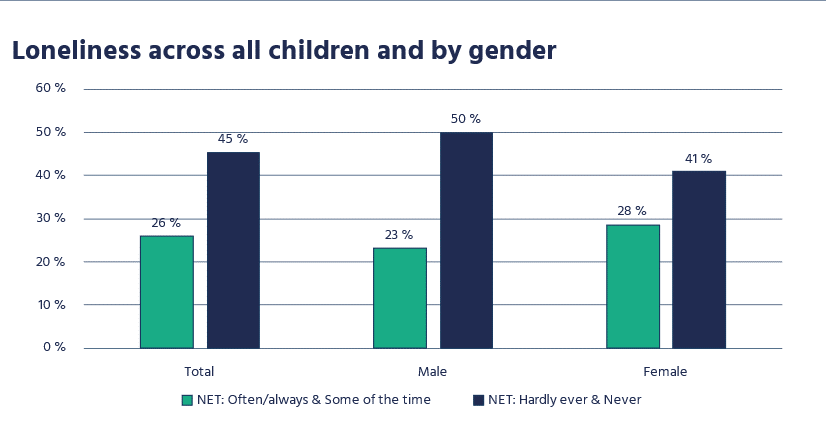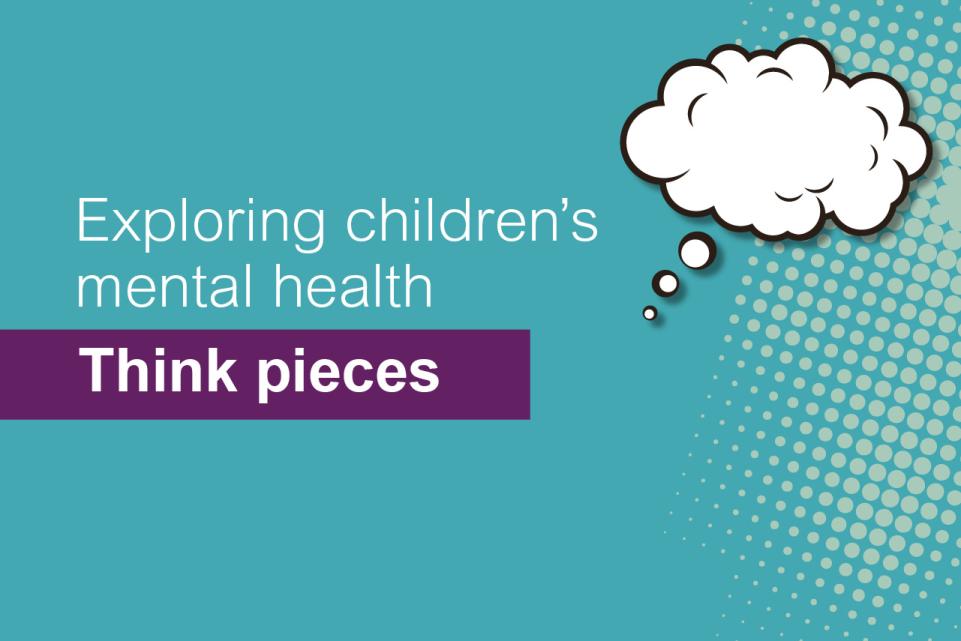This independent article from the Children's Commissioner exploring early support for children and young people is part of the LGA children and young people's mental health think piece series.
As Children’s Commissioner, listening to children and young people is always my priority. Over the past few years, I have spoken to thousands of children, who consistently tell me that having good mental health and wellbeing is a top priority for them. In 2021, The Big Ask survey of over half a million children, one in five said that they are not happy with their mental health – a figure that is even higher among particular groups of children, such as older teenage girls and children in care.
Since then, my team and I have visited schools, hospitals, children’s homes, mental health inpatient settings, and community care settings to better understand what is driving children’s poor mental health, and how children can be better supported sooner.
Key challenges
Families who are struggling to support children
A key challenge for children, young people and families is that they are not getting help early enough. If we want to promote good mental health among children, we need to start at the beginning – and look at the foundations for a happy life. For me, it is clear that this means starting with family.
Last year, I was commissioned by Government to conduct an independent review into contemporary family life. This comprehensive review, which involved hearing from over 8,000 children and parents, highlighted that having a supportive family is the foundation for children’s happiness, healthy relationships and success later in life. This was underlined in my recent nationally representative survey of children aged 8 to 17 in England in March 2023.
I can reveal that 79 per cent of children told me they turn to their parents as a first port-of-call for mental health support.
However, families face challenges and pressures which they need support to cope with. My review found that financial struggles, housing issues, insecure immigration status, childcare, familial conflict, abuse, and parental mental ill-health or substance use can all reduce the protective effect of families for children. One mother, who the Children’s Commissioner’s office met at a family hub, reflected: "mental health is so complicated. I’ve had anxiety for longer than I remember, probably all my life, and it’s hard with kids because it can affect your parenting, but you never want to admit it." Equally, children being taken into care, and regularly changing placements, can be highly disruptive and traumatic.
Children with special educational needs and disabilities (SEND) can find it particularly difficult to get the right support, which can impact on their mental health, as well as the whole family. A parent at a support group for children with SEND explained: "If you have a child with a disability or additional needs, nobody ever sits you down and says at the beginning – ‘This is where you need to go to.’ …You find that out when you're already on that journey, so then you're all of a sudden thinking, ‘What? What do I do? Where do I go?"
Online harms and peer-on-peer abuse
But there are of course challenges beyond the family unit as well. One of my most pressing concerns is the harms that children are exposed to online.
My work has uncovered the insidious ways in which inappropriate content, particularly pornography, warps children’s understanding of sex, consent, and healthy intimate relationships. Children are open and articulate about the cumulative negative impact of sexualised content, misogynistic online cultures, intimate image-sharing, and edited images on their mental health and self-esteem (particularly girls), and perceptions of gender norms and sexual consent. My most recent report on this issue provides new evidence on the link between being exposed to this content and children’s harmful sexual behaviour, trauma which many children take into adulthood.
Children have also attributed their poor mental health to social media sites. As one 13-year-old girl put it:
"Social media has made everyone so aware of themselves, so stuck in their own head that they’ve lost touch with reality. It seems that so have I."
Interestingly, children do not think all social media platforms are equally harmful. Data from my 2023 nationally representative survey of 3,593 children in England shows that sites like TikTok were considered by more children to have a net harmful effect (26 per cent) than other platforms like YouTube (6 per cent) (see figure one below). This could relate to the type of content children are exposed to on these sites, and the algorithms they use to generate and share content with users of the site.
Loneliness
Many children have struggled with loneliness since the pandemic, with school closures and restrictions on socialising impacting children and young people’s ability to develop and maintain relationships with peers. Figures from my 2023 nationally representative survey highlight that a greater proportion of girls (28 per cent) said they feel lonely often/always/some of the time, compared to 23 per cent of boys.
"Having DLD [Developmental Language Disorder] is very difficult. I am at an autism school (I have this too). They seem to know a lot more about ASD [Autism Spectrum Disorder] than they do about DLD. Sometimes I feel very lonely." – Girl, 15 (The Big Ask)
Left to fly under the radar, children who are struggling with family life, feeling unsafe online, and feeling lonely can develop more serious mental health conditions, such as anxiety and depression. Too often in my work I see children who have faced terrible trauma in their lives, who haven’t had timely interventions to meet their needs. At the most acute end, these children end up living in mental health inpatient units, or being deprived of liberty in unsuitable settings, like hotels and caravans.
This is not an acceptable way for children to be living. Making sure more children grow up happy and healthy is reason enough to focus on more prevention and early intervention. But what happens when we get this wrong should also motivate us to act.
A way forward
When it comes to children’s mental health, we need to really focus on tackling some of the underlying drivers of poor mental health. We have to understand the worlds that children are living in and focus on supporting them to have healthy and happy relationships with family, peers and their wider communities.
For this to become a reality we need to ensure every family receives support to promote good mental health and wellbeing through pregnancy and the early years through Family Hubs, including mental health support for parents where needed. We can achieve this through roll out of a Family Hub, or equivalent model of integrated care under one roof, to every neighbourhood – so that all children and families benefit from the support they offer, including health visiting, parenting programmes, early help and Start for Life. This must include a focus on early years, to ensure parents have the support they need to give their baby the best start to life. We need to see a greater focus on parent-infant mental health services, which can have lifelong benefits for children.
And more broadly we need to see a greater emphasis on strengthening and supporting families when it comes to policy making. The recommendations in my Family Review set out a family-friendly outcomes framework that government departments should be working to.
And we need to ensure the online world is a safe, supportive, and exciting place for children to have fun, learn, and connect with others, and all children are protected from harm and taught the digital skills they need to be safe online. We can move towards this goal through ensuring the Online Safety Bill mandates robust age verification measures on adult sites, and swiftly completes its passage to become law. We must also ensure children and parents are equipped with enhanced digital literacy and information about keeping safe online.
I want England to be the best place for children to grow up, as all children have plentiful access to safe spaces to play and have fun with their friends and make connections. We can achieve this through making sure that every child, including children with special educational needs and disabilities, has access to an expanded out-of-school offer. This should include more trips and enrichment opportunities, so that all children have the chance to experience activities that they want to pursue and make friends. There should be an updated duty on local authorities, to ensure a minimum level of youth provision in all areas of the country and a broader duty on public bodies to make their spaces available to charities working with children at cost.
Finally, if difficulties do arise, we must meet children where they are: all children should receive support in school. When there are early signs that something might be not be quite right, every school should have the appropriate support in place. This can be done through roll-out of Mental Health Support Teams to every school, and training for senior mental health leads in schools and the NHS. To support this work, every school should adopt a whole school approach to mental health.
I am absolutely determined to ensure that every child is supported to lead a long, happy healthy life, and fulfil their potential. We must keep listening to children to understand the challenges they face in society today, and how we can best support them at the earliest possible opportunity.





